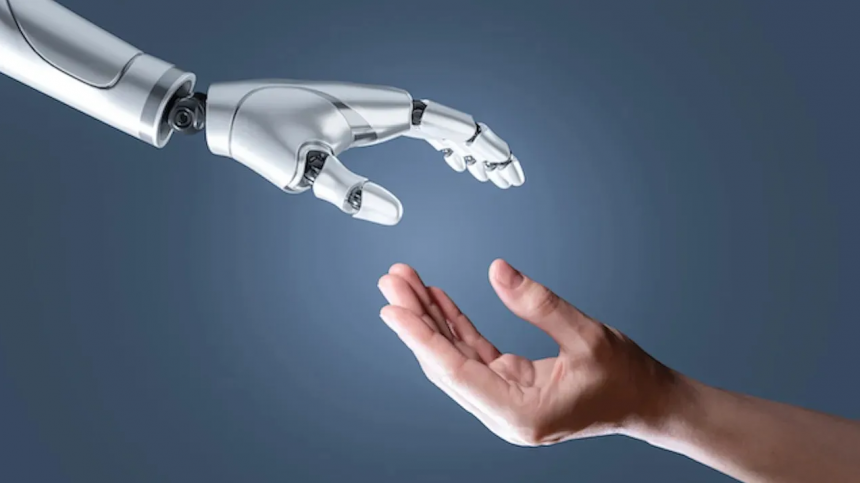In the relentless march of technological progress, the world has grown smaller, faster, and more interconnected than ever before. From smartphones to artificial intelligence, technology offers convenience, efficiency, and solutions to problems that once seemed insurmountable. Yet, alongside these benefits, there is a growing sense that something essential might be slipping away: the human touch. Have we, in our quest for innovation, inadvertently distanced ourselves from the very experiences that make life meaningful? There are serious questions on whether technology, while enhancing our lives, is also eroding our capacity for empathy, presence, and authentic human connection.
The Promises of Technology
Technology has undoubtedly transformed the way we live and work. It enables instant communication across borders, provides access to vast amounts of information, and simplifies daily tasks. From medical advancements that extend life expectancy to apps that promote productivity, technology promises us a “good life” – one where obstacles are minimized and possibilities expanded.
However, despite these advancements, rates of loneliness, anxiety, and depression are on the rise. Paradoxically, in a world that is more connected digitally, people report feeling increasingly isolated. This tension between technological convenience and emotional disconnection raises important questions: Has the promise of the good life come at the cost of real, human experiences? And if so, is this a trade-off worth making?
The decline of face to face interaction
One of the most noticeable impacts of technology is the decline of face-to-face communication. Messaging apps, social media, and email have replaced many in-person conversations. While these tools make it easier to communicate, they often dilute the richness of human interaction. Non-verbal cues such as eye contact, tone of voice, and body language are lost in text-based exchanges, making it harder to convey empathy and understanding. In seeking likes and followers on social media platforms, we may miss out on the deeper relationships that develop through shared experiences and vulnerability.
The loss of purpose and erosion of presence
Beyond personal relationships, technology has also altered the way we engage with work and leisure. Automation promises to free us from repetitive tasks, but it also raises existential concerns. If work gives structure, meaning, and purpose to life, what happens when machines take over many of these functions? As jobs become automated, there is a risk that people may feel disconnected from the satisfaction of meaningful labor.
The philosopher Albert Borgmann describes this phenomenon as the “device paradigm.” In his view, modern technology turns activities that once required effort and skill into passive consumption. For example, streaming platforms provide instant entertainment without the need to visit a theatre or engage with others. While such convenience is valuable, it can also diminish the sense of accomplishment that comes from effortful engagement.
Another consequence of technological advancement is the erosion of presence – the ability to be fully engaged in the moment. The constant notifications, messages, and updates that accompany modern devices fragment our attention and make it difficult to focus. Philosopher Byung-Chul Han describes this phenomenon as the “society of distraction,” where individuals are trapped in a cycle of overstimulation and shallow engagement.
This loss of presence affects relationships and well-being. Conversations are interrupted by the temptation to check phones, and shared moments are diluted by the urge to document them for social media. Over time, these habits can create emotional distance, as people struggle to connect meaningfully with others and with themselves.
Towards a new understanding of good life
The ancient Greeks, particularly Aristotle, defined the good life not as the pursuit of pleasure or convenience but as *eudaimonia* – a state of flourishing achieved through meaningful activities and relationships. In our modern context, the good life must include both the benefits of technology and the richness of human connection. The richness of human relationships and the treasure of human feelings and experiences should never be the price we pay for the innovations and advancements in technology.The definition of good life should be refined in light of the importance of values of human connection, empathy, emotions, lived experiences etc.
To achieve this, we need to reconsider what we value. Is convenience the highest goal, or should we prioritize relationships, purpose, and presence? Can we design technologies that support, rather than undermine, these values? These questions require reflection at both individual and societal levels, involving designers, policymakers, and everyday users.
Conclusion
Technology offers extraordinary tools for improving our lives, but it should not replace the essence of what makes life meaningful. The challenge is to use it wisely, ensuring that it serves humanity rather than diminishing it. By embracing technology while simultaneously preserving the values of good and flourishing life, we can create a future where innovation and the human touch coexist, allowing us to live not just efficiently but deeply and meaningfully.
(Author is a research scholar in political science at University of Kashmir. Feedback: [email protected])








